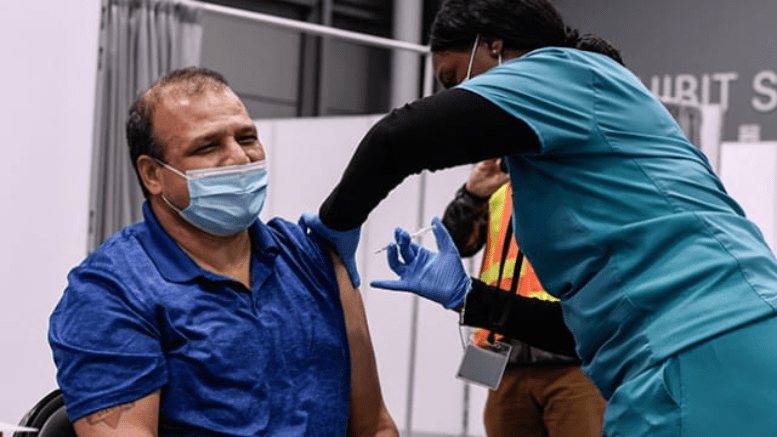Professor James Druckman, of the Department of Political Science, found that Republicans are more likely to get vaccinated when they are encouraged to do so by top Republican political figures.
The number of Americans willing to get vaccinated continues to rise overall, but as of May 2021, 49% of Republicans said they were either unsure about the vaccine or did not plan to get it at all. As such, Druckman and a team of researchers from Northwestern, Stanford, and MIT surveyed 1,500 Republicans about their willingness to get vaccinated.
“We thought this was a crucial question to address given the bulk of vaccine messages have been coming from Democrats, with Republicans — until last week — remaining largely quiet or, in some cases, discouraging vaccination,” said Druckman.
The participants were divided into three groups: one group watched a video where Donald Trump endorsed the vaccine, one group watched a video where President Joe Biden endorsed the vaccine, and one group watched a video where a third, non-political organization endorsed the vaccine.
Druckman and his team found that those in the group getting Republican messages were 7% more likely to say they would get vaccinated than those who got Democratic messages, and nearly 6% were more likely to do so than those in the control group.
They also found that Republicans who heard Democratic endorsements were significantly less likely to encourage others to get vaccinated.
“This is a discouraging finding because it suggests that continually hearing Democratic endorsements could dissuade vaccinated Republicans from encouraging other Republicans to do so,” Druckman said.
Druckman is also a member of a university consortium called The COVID States Project, which includes researchers from Northwestern, Northeastern, Harvard, and Rutgers. The researchers surveyed 20,669 people across the U.S. about their opinions on different kinds of vaccine mandates.
They found that the number of Americans who support an overall vaccine mandate has increased from 58% in April to 64% in June. Support is also higher for specific mandates around vaccinations for flying (70%) and returning to universities (66%) or schools (61%).
“The support for mandates is higher than many realize and increasing, likely due to the spread of the delta variant and anxiety about school starting this fall,” Druckman said.
The researchers also found a narrowing gap across nearly all partisan and demographic subgroups. But while 70% of the eligible U.S. population is now vaccinated, there remains a persistent 20% to 30% of Americans who are uncertain or unwilling to be vaccinated.

James Druckman
Major differences were seen in terms of party affiliation and where respondents lived. Americans who identify as Democrats were twice as likely as those who identify as Republicans to approve of vaccine mandates (84% to 45%), and rural residents were 20 percentage points less supportive of mandates than urban dwellers (73% to 53%).
“The spike from delta may be finally closing some of the partisan vaccine divide, but there is still a ways to go. Increased messaging from Republican leaders will continue to be vital,” said Druckman.
Read more about the vaccine mandate report in Northwestern Now. Read the full survey here.
Read more about the partisan study in Northwestern Now. Read the full study here.

